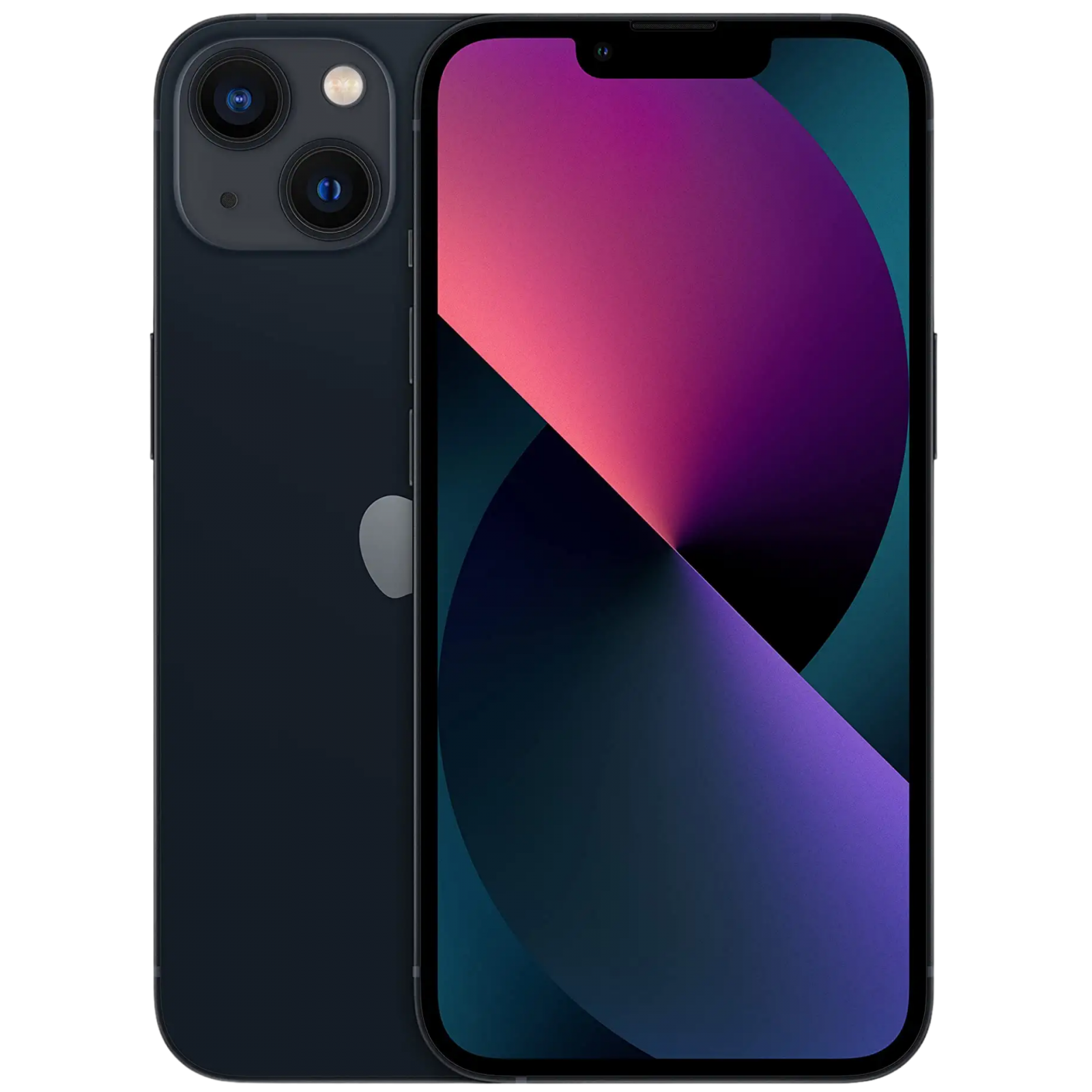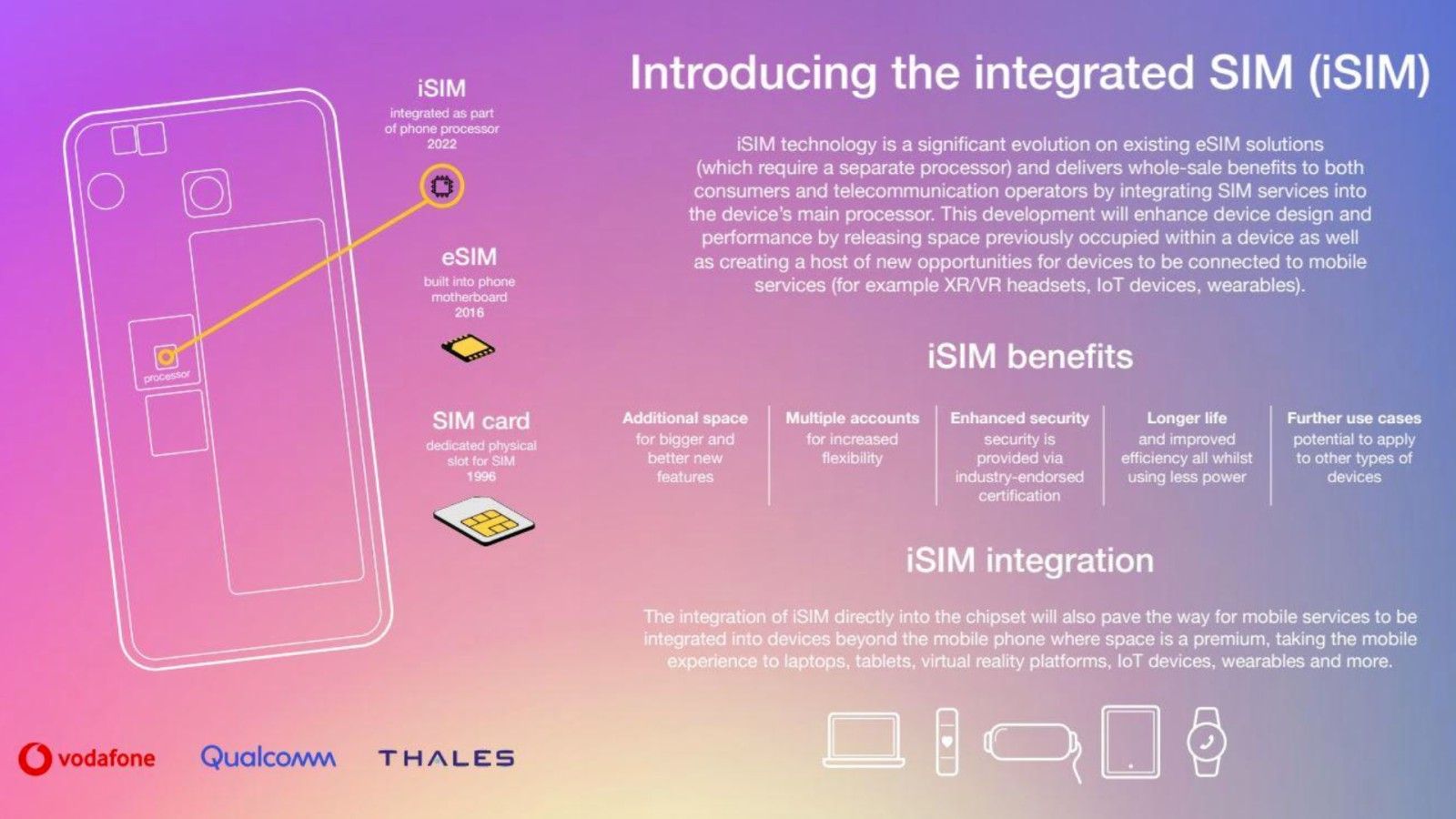Qualcomm joined forces with Vodafone and Thales to create the next generation of SIM technology. Today, the three companies demonstrated a new iSIM technology that could replace physical SIM cards and the previous eSIM standard to free up even more space inside smartphones and other smart devices.
The new iSIM technology (“i” stands for Integrated) offers similar benefits to the currently existing physical SIM cards and the eSIM technology. The new iSIM would be different from eSIMs, as it would be integrated into the main processor, which would allow “greater system integration, higher performance, and increased memory capacity”, says the Qualcomm press release. The main difference is that while eSIMs are embedded into devices, they require a separate chip, while the iSIM technology eliminates the need for that as it integrates closely in the device’s processor.
“This technology is the latest evolution of SIM technology in which ‘eSIMs’ are embedded into devices. However, eSIM requires a separate chip: with iSIM this is no longer necessary and removes the need for dedicated space assigned to SIM services.
iSIM technology is a significant evolution on existing eSIM solutions and delivers wholesale benefits to both consumers and telecommunications operators, further paving the way for mobile services to be integrated into devices beyond the mobile phone, taking the mobile experience to laptops, tablets virtual reality platforms, IoT devices, wearables, and more.”
Qualcomm also highlights the benefits of using iSIM technology inside smartphones, laptops, smartwatches, and more:
- Simplifies and enhances device design and performance by releasing space previously occupied within a device
- Consolidates the SIM functionality into the device’s main chipset alongside other critical capabilities such as GPU, CPU, and modem
- Enables remote SIM provisioning by the operator leveraging the existing eSIM infrastructure
- Opens mobile service connection capabilities to a host of devices that previously could not have SIM capabilities built-in
Qualcomm also revealed that a proof of concept (POC) demonstration already took place in Europe, using the Samsung Galaxy Z Flip 3, which featured a Snapdragon 888 chipset with a built-in Secure Processing Unit that ran the iSIM operating system. The demonstration took place in Samsung’s R&D labs using Vodafone's “advanced remote management platform”.
Qualcomm didn’t say when the technology would roll out to more devices, and we have no information on when we could expect to see this new technology released to the public. We have already talked about how the new iPhone 14 Series may not come with a physical SIM slot, where we also compared traditional SIM cards to eSIMs.

Apple iPhone 13
The iPhone 13 is the default smartphone from Apple for 2021. If you're looking for an experience that remains fast and fluid over years to come and not lacking on any hardware front, this is the device to get.

